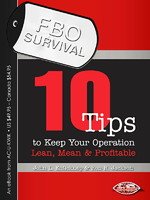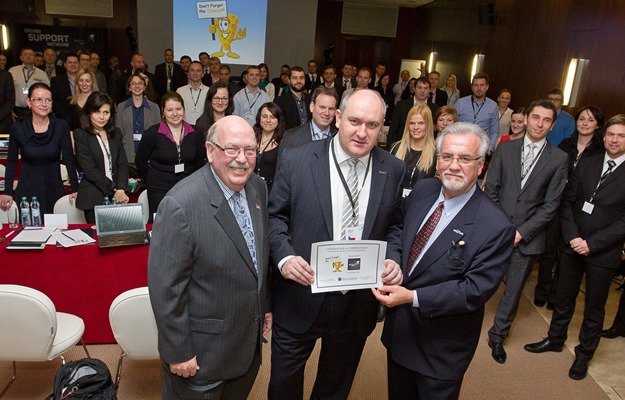
- Facilitators of NATA’s FBO Success Seminar and Authors of the forthcoming book: FBO Survival: 10 Tips to Keep Your Operations Lean, Mean & Profitable
This article from the archives analyzes how FBOs with flight training programs can make the most of their flight schools as aviation services become more specialized and while the pilot population is declining. It was originally published on March 24, 2011.—Ed.
“He who would learn to fly one day must first learn to stand and walk and run and dance; one cannot fly into flying.” – Friedrich Nietzsche, 1844-1900
Friedrich Nietzsche, a controversial philosopher for his time, made this statement before the Wright Brothers even flew, so we may assume he was not referring to the business of training people to fly. However, this quote has much relevance to our FBO flight training activities today.
It wasn’t that many years ago that the majority of FBOs were defined as “full-service companies” offering flight school training, new and used aircraft sales, charter, maintenance, hangars, and terminal facilities.
The business model was to market to potential pilots, both professional and recreational, train them, sell them an airplane, hope they would trade up, maintain the airplane, hangar it and, of course, sell them fuel and various services. As the pilot grew in experience and need, the FBO could make a good living by selling the next biggest aircraft.
It was a cradle-to-the-grave concept, and it seemed to work just fine.
The Changing FBO Business Model
However, in the last 30 years, the business of running an FBO has become much more specialized. It has evolved to the point that a full-service FBO is almost nonexistent. We now have businesses that have become SASOs (specialized aviation service organizations) that specialize in primarily fuel, line services and real estate management.
On one hand, I believe this has been a healthy trend for the industry because it allows the owners to specialize in a narrow facet of the FBO business based on their particular talents and knowledge.
On the other hand, this trend has taken the emphasis away from developing a growing pilot population. The growth of aviation is directly tied to maintaining a high interest in training new pilots. The pilot population topped out a number of years ago and has been declining ever since.
We hear all the usual arguments: high cost (by the way, it has always been costly to learn to fly), poor flight instructors, old slow aircraft, etc.
Because many FBOs have chosen not to provide flight school training for whatever reason, an important resource is vanishing in many communities.
That leaves primarily the specialized schools to fill the void. We have a few national chain flight schools, those schools specializing in instrument training and individual schools that target specific market segments. These segments may include foreign students, those interested in recreational flying, Type A business executives with the means and motivation, and colleges, as well as others.
Pilot Retention
Besides attracting new pilots to enter a flight training program, one of the major problems flight schools have is retaining the interest of the pilots throughout the process. Historically, there is a drop-off after soloing and again after finishing training.
When a new pilot, be it a private pilot, recreational pilot or even those who are starting a piloting career, passes the final flight check, the big challenge for the flight school is to keep this new pilot coming back for more advanced training. This is when the flight school owner, instructors, staff — the whole team — needs to think outside the box and get creative in the area of retention.
In other words, they need a dynamic marketing plan to develop pilot-specific programs to grow the new pilot, keep the interest level up, improve skills and generally have fun. Remember, for the most part, you are competing for discretionary dollars, which can go for flying, boating, golf, sport cars, etc. Here are some ideas for keeping pilots at your flight school:
- Have pilots join the Wings Program, a pilot proficiency program that can be taken online as well as flying. Sign up at www.FAASafety.gov to create your own account, and educate your flight instructors. See the new Advisory Circular AC 61-91-J.
- Tail Wheel endorsement: This will make your new pilot a better pilot.
- Trip to ATC Facilities: Great for IFR and instrument rating trainees.
- Trip to Altitude Chamber: This is good for all pilots.
- Flight Reviews: Both VFR and Instrument Proficiently Check. Find the Instrument Proficiency Check (IPC) Guidance publication at www.FAASafety.gov.
- Weekend Ground Schools.
What’s most important is how you market these programs. You need to have a customer base from your existing pilots, a database of the existing pilot population from a radius of 200-300 hundred miles, advertising in the local/regional aviation publications, an e-newsletter campaign, social media presence and a sustained community outreach to the interested pilot population. All this should be part of your original business and marketing plan.
So what can Friedrich Nietzsche teach us? For all successful business enterprises, we “must first learn to stand and walk and run and dance” before we can fly. And how do we fly? We develop and use a well-matured business plan, spend some time thinking creatively with the team and remember to add a little fun along the way.
About the bloggers:
John Enticknap
John Enticknap has more than 35 years of aviation fueling and FBO services industry experience and has served as president/CEO of Mercury Air Centers, a network of FBOs he grew from four facilities to 21 locations. He has international FBO experience including opening the Royal Aviation Terminal in Kuwait. John has held executive management positions with DynAir Fueling and CSX Becket Aviation and holds a Bachelor of Science in industrial management from Northeastern University. He teaches the acclaimed FBO Success Seminar for the National Aviation Transportation Association (NATA) and is an NATA certified safety auditor. John is the co-author of the forthcoming book FBO Survival! Keeping Your Operation Lean, Mean & Profitable. He also writes an industry blog titled FBO Connection for Penton‘s B&CA Digest. He is an active ATP and CFI rated pilot with more than 8,100 flight hours; certified in both fixed and rotary wing aircraft. jenticknap@bellsouth.net, Ph: 404-867-5518, www.absggroup.com
Ron Jackson
Ron Jackson is co-founder of Aviation Business Strategies Group and president of The Jackson Group, a PR agency specializing in FBO marketing and customer service training. He has held management positions with Cessna Aircraft, Fairchild Aircraft and Bozell Advertising. Ron developed the strategic marketing communication plan and programs for Mercury Air Centers and consults with numerous FBOs in areas of marketing, promotions and customer service training. He is the author of Don’t Forget the Cheese! The Ultimate FBO Customer Service Experience. and co-author of the forthcoming book FBO Survival! Keeping Your Operation Lean, Mean & Profitable. He is a journalist and co-developed NATA’s acclaimed FBO Success Seminar Series. Ron writes an industry blog for Penton’s B&CA Digest titled: The FBO Connection. Ron@thejacksongroup.biz, Ph: 972-979-6566, www.absggroup.com
Originally Published on March 24, 2011.
























